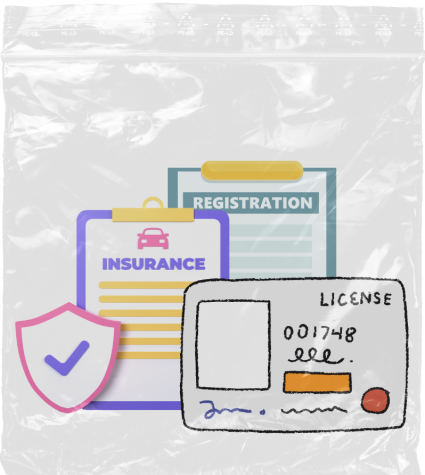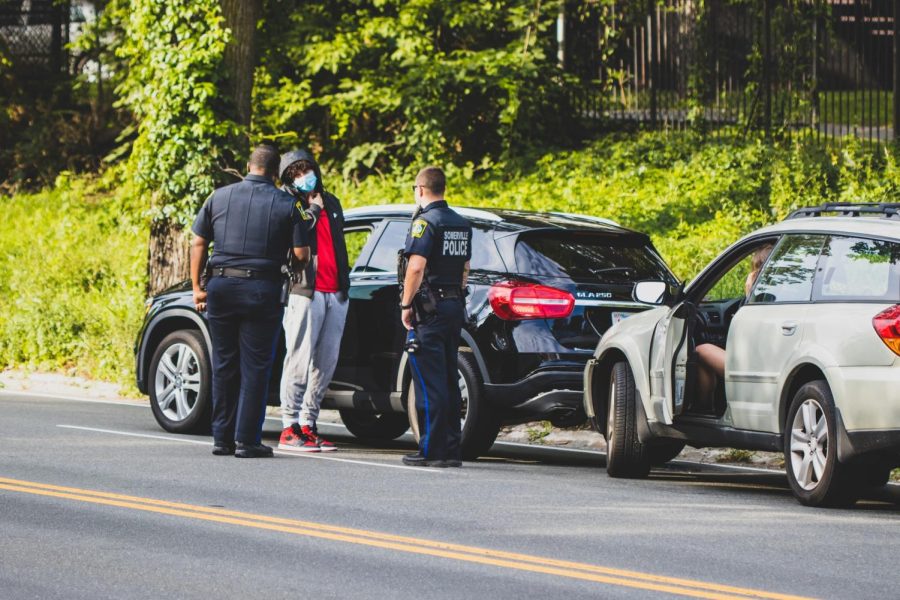10 Tips for Teen Drivers Involved in an Accident
Photo by Aaron Doucett on Unsplash
New drivers are most at risk for getting into an accident. Here are some tips if you ever find yourself in that situation.
February 13, 2023
Teen drivers crash at nearly four times the rate of drivers 20 and older per mile driven, according to the Insurance Institute for Highway Safety. While you may feel comfortable driving, it’s likely that you will be involved in a car accident over the next few years.
Here are a few things to keep in mind and have ready in the event of a car crash.
Tip 1:
Do not leave the scene. Call 911 and your parents – try your best to describe where you are using street names or buildings so they can locate you quickly.
Tip 2:
Examine your injuries. If there are other passengers in your vehicle, check to ensure they are also stable. If you are experiencing intense pain in your back or neck do not get up unless staying inside the vehicle poses a threat. Spinal injuries are extremely common during accidents and moving can cause further damage. If you are bleeding, focus on applying pressure, even though it hurts. Seatbelt and airbag burns are common but heal after a week or two depending on severity.
Tip 3:
After you are stable, take in your surroundings. Where are you? What’s the weather and environment like? Is the vehicle dangerous? If the vehicle smells like gas, is on fire, or seems to pose a threat, exit immediately but do not stand in the road.
Tip 4:
Look for witnesses as you are waiting and check your vehicle if you are able to get out of your car. Take pictures of the damage, it will be helpful for insurance. Remember to breathe: the calmer you are, the easier it will be to talk to the police and EMTs.

Tip 5:
Make sure you have your license, vehicle registration, and insurance ID. When the police arrive, never admit fault. Avoid phrases such as “I’m sorry:” anything you say can be used against you – even if you are sitting in the back of an ambulance. “Answer truthfully and accurately, but do not offer extraneous information,” director of driver education Karen Waters said. “You have the right to say “no” if you are asked to have your car searched.”
Tip 6:
Let authorities handle exchanging information with the other party if another vehicle was involved. You never know who you’re dealing with and they might become hostile toward you.
Tip 7:
Answer the EMTs accurately so they can best assess damage done to your body. Your adrenaline will still be high so try your best to connect with your body and understand where the pain is originating from.
Tip 8:
Focus on your health, not the vehicle. Your life will always be more important than a car. Insurance and material goods can be dealt with later and most likely by your parents. If you are afraid your parents might get mad at you, try your best to breathe. Your parents will always be grateful for your life and your health will be their main concern.
Tip 9:
If your car is totaled or unable to be driven, the police and your parents will handle towing to clear the area. Make sure you have a ride home either from your family or a friend. The police will work with your parent(s) regarding towing.
Tip 10:
Once you get home, ice anything that is sore or might become sore. Ice your neck and back even if you are currently feeling no pain, you will most likely wake up the next day and experience soreness along your spine or in your legs.
If the pain persists, take painkillers such as ibuprofen (Advil) in correct doses. The more over-the-counter painkillers you take in a shorter amount of time the more damage it will cause your liver in the long run. Ice and heat should be your best friend! Now, take the time to relax, recover, and be thankful you’re alive.
“The important thing is to take a deep breath and be glad that you’re okay. That’s why they call it an accident, it’s okay,” Waters said. “Most importantly, don’t let it prevent you from getting back into the car and regaining your confidence as a driver.”


